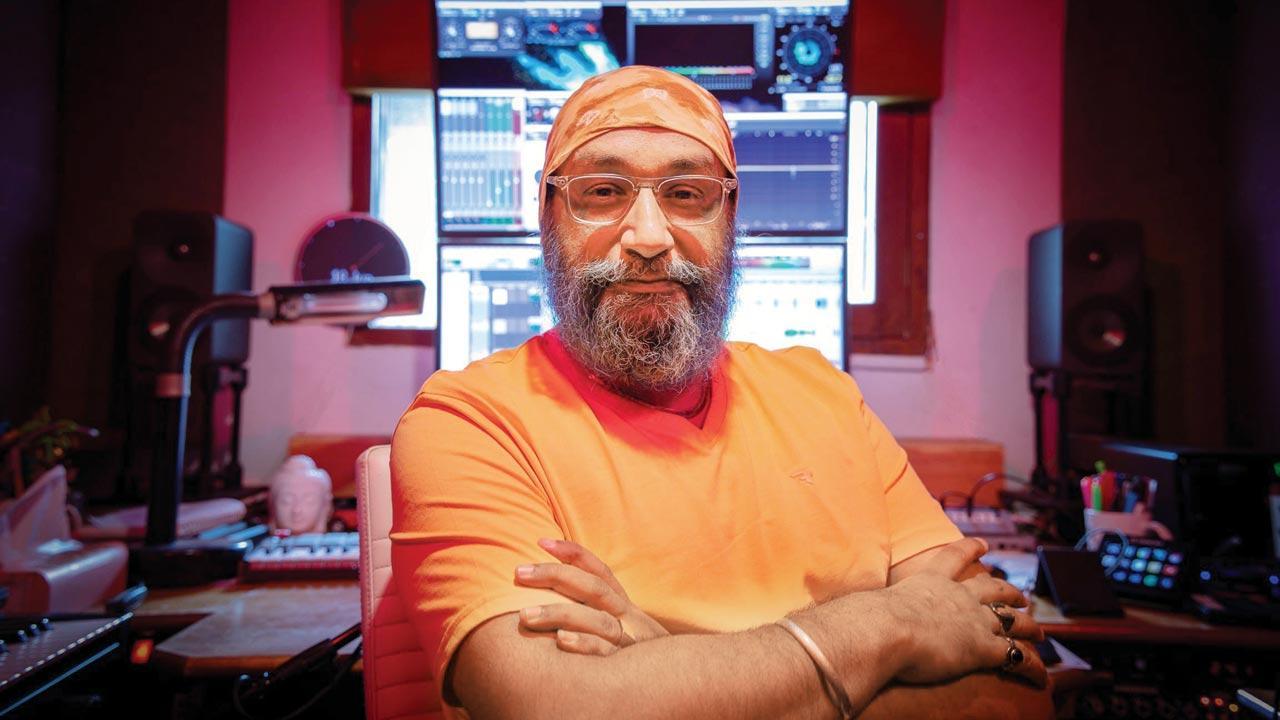Living rooms were reconstructed to minimize noise, blankets were used for dubbing-K J Singh
7:59 AM
Posted by Fenil Seta

Days before hosting an IPRS session on the influence of tech in music, audio engineer K J Singh imagines an industry that will be ‘truly mobile’
Sonia Lulla (MID-DAY; August 9, 2021)
“The best place to record is in a [walk-in] closet,” says K J Singh in the midst of this discussion, highlighting how the music industry was caught scrambling to comprehend technology during the Coronavirus pandemic. The National Award-winning Indian audio engineer, who has worked closely with AR Rahman, has been part of the industry since music was consumed on cassette.
The advent of digital synthesisers, he says, was among the early factors that changed the course of music-making. “We no longer had to have all artistes gather at the same time to record a song. Early influences of the synthesizers can be seen in the works of R D Burman, and it became clear that listeners were enjoying those tunes. Technology made it easy to replicate acoustic sounds. I could create sounds of drums and bass on the computer, and we no longer needed live musicians for it,” says Singh, who hosted a session on the subject yesterday, as part of the Indian Performing Right Society’s (IPRS) session, New Era of Music.
He admits that it was only during the pandemic that the worth of technology became fully evident. “Those on the fence needed to upgrade themselves, else they’d be isolated. In the first wave, the aim was to simply produce work that could suffice. In the next, people considered ways to enhance the quality of productions. Living rooms were reconstructed to minimize noise, blankets were used for dubbing, and better quality microphones were purchased.”
Singh makes several references to music gadgets and softwares that have revolutionized the final product of an audio file, however, it is development that has made the process of recording live from different parts of the world, that is noteworthy. “It is what enabled me to create a song while sitting in Bombay, with someone who was in Turkey. There’s something called latency, which is the time lag that can become part of a recording, should it be simultaneously worked on from distant places. We now have softwares to compensate for that, and that has made it possible to truly be mobile, as a musician.”
Of course, filmmakers have several commercial benefits to reap from such developments. “While working on 7 Khoon Maaf, we needed a Russian actor to record a few lines again, because, during post-production, we realised that something was amiss in that section. The team had planned to fly him down, have him record it, and send him back. Of course, it was going to be a costly affair. So, I told Vishal [Bhardwaj, director] that we could employ a software that, if simultaneously used from different parts of the world, and in similar studio settings, could create good quality output. The job was done over the internet. We could communicate with him as he lay his vocals on the file that we had in hands, at our studio.”
This entry was posted on October 4, 2009 at 12:14 pm, and is filed under
7 Khoon Maaf,
Coronavirus,
Indian Performing Rights Society,
Interviews,
K J Singh,
K J Singh interview,
R D Burman,
Vishal Bhardwaj
. Follow any responses to this post through RSS. You can leave a response, or trackback from your own site.
Subscribe to:
Post Comments (Atom)
Post a Comment